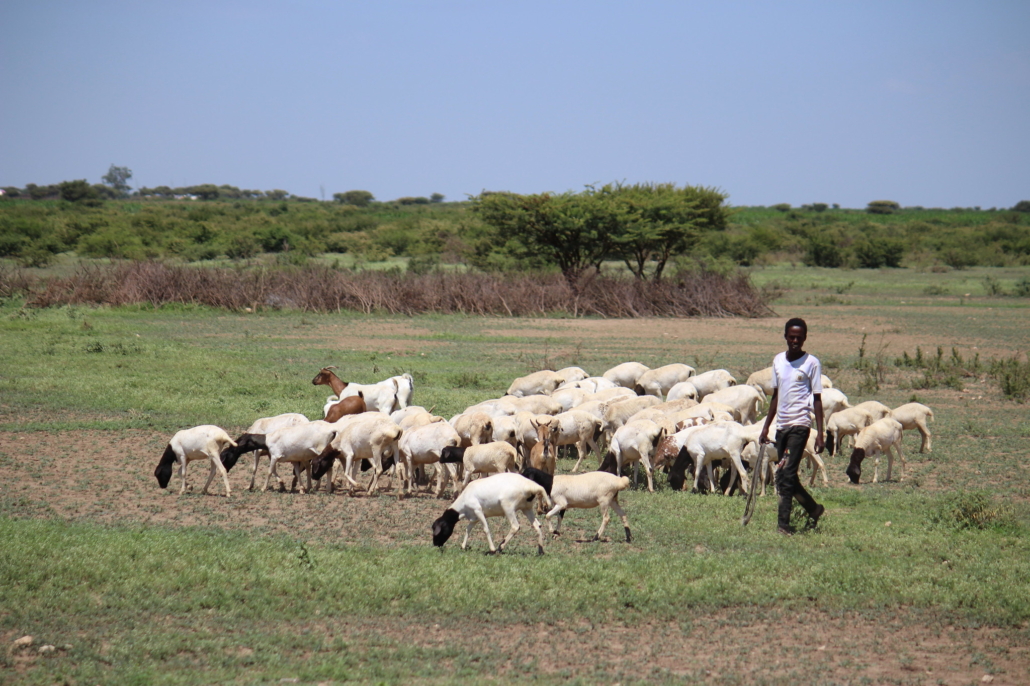TIKA’s Work to Support Somaliland’s Farmers

Located in Northern Somalia, Somaliland is an autonomous region with a standing population of 5.7 million individuals. Somaliland declared independence in 1991, yet remains an unrecognized state by African countries. While this region can be recognized for its deep cultural history and Islamic structure, it is worth noting that Somaliland is extremely poor and that the rural poverty rate is about 38%. Ensuring a stable economy is imperative for any region with a high poverty rate, especially Somaliland.
Necessary for Economic Growth
Agriculture is regarded as one of the most advantageous drivers of economic growth in this region. Somaliland’s farmers hold one of the most critical jobs in sustaining and fostering economic expansion. Agriculture in Somaliland creates a multitude of opportunities for employment and allows a wide range of jobs as well. In fact, Somaliland’s agriculture industry contributes 15% of GDP and more than 20% of the region’s population depends on this practice for their livelihoods.
The active practice of agriculture also alleviates food security in Somaliland, as a greater variety of food strengthens food security. It goes without saying that farmers must be protected in this region, as they play one of the most crucial roles in Somaliland.
TIKA’S Work
TIKA, the Turkish Cooperation and Coordination Agency, recently paired with the Ministry of Agriculture of Somaliland and provided 100 Somaliland farmers with seeds and fertilizers in order to support their work efforts. These seeds consisted of Sorghum, corn and pea seeds that farmers will now have access to and will be able to harvest. In order to grow crops more efficiently, farmers must possess working motor pumps to maintain livestock care and to control irrigation, thus the agency provided Somaliland with more of these tools as well.
Despite Somaliland being extremely farmer-friendly, the impact that the region’s climate plays on the agricultural industry. Rain is essential for harvesting, and Somaliland is no stranger to droughts. In fact, this region is often in a drought crisis. Fariya, a mother and a farmer from Somaliland explains the impact that the droughts have on her family and her personal farming efforts. Fariya tells SOS Children’s Villages “We harvested the vegetables every three months, consumed some and sold the surplus. There is hardly anything to sell now, and this has hurt us financially. We have to wait a year for the trees to produce enough fruit to take to the market.”
Fariya goes on to explain how farmers in Somaliland often need to look for an alternative source of income when these droughts occur. A main goal TIKA planned to tackle was to consider Somaliland’s climate and to take precautions before a drought occurs, so farmers are not left hopeless.
Looking Ahead
With more and more programs coming to light that support agriculture in the region and uplift Somalilland’s farmers, the future is promising. For example, The Cheetah Conservation Fund has introduced a project that will provide farmers of the regions with the skills and knowledge that they need to improve their farming through sustainable practices. The goal of this section of the project is to “introduce sustainable, ecosystems-based livelihoods.”
Although it may feel impossible to help a region so far away, by supporting an organization that supports Somaliland’s farmers, making a difference is more achievable than expected.
– Ryan Balberman
Photo: Flickr
